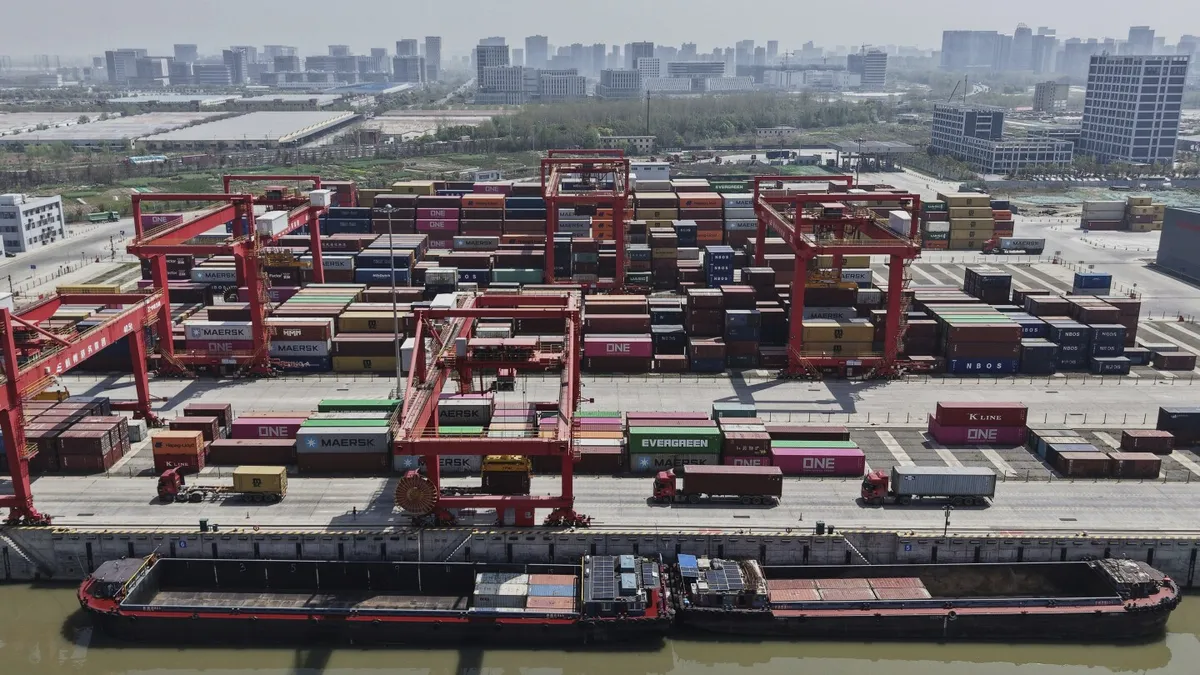
On Tuesday, China issued a stern warning, declaring it would implement countermeasures against the United States in order to “safeguard its own rights and interests.” This response follows President Donald Trump’s recent threat of imposing an additional 50% tariff on Chinese imports. The Commerce Ministry of China criticized the U.S. for its so-called “reciprocal tariffs,” labeling them as “completely groundless” and indicative of a “typical unilateral bullying practice.”
The ministry emphasized that the countermeasures China has already enacted are legitimate actions aimed at protecting its sovereignty, security, and developmental interests while also maintaining a stable international trade order. They asserted that these measures are entirely justified and necessary. “The U.S. threat to escalate tariffs on China is a mistake on top of a mistake and once again exposes the blackmailing nature of the U.S.,” the ministry stated. “If the U.S. insists on its aggressive stance, China will fight to the end.”
Trump's tariff threats have raised significant concerns about the potential for a financially destructive trade war, causing instability in stock markets worldwide, from Tokyo to New York. The president's comments came shortly after China vowed to retaliate against tariffs he proposed the previous week. In a post on Truth Social, Trump stated, “If China does not withdraw its 34% increase above their already long-term trading abuses by tomorrow, April 8th, 2025, the United States will impose ADDITIONAL Tariffs on China of 50%, effective April 9th.” He further announced that all discussions with China regarding their requests for meetings would be terminated.
If Trump proceeds with these new tariffs, the cumulative U.S. tariffs on Chinese goods could reach a staggering 104%. This would be in addition to the existing 20% tariffs imposed as a reaction to fentanyl trafficking and the separate 34% tariffs introduced last week. Such an increase in tariffs could lead to higher prices for American consumers and may motivate China to flood other markets with cheaper goods, potentially deepening trade relationships with partners like the European Union.
Throughout his first term, Trump often boasted about stock market gains; however, the current wave of tariff threats has triggered fears of losses on Wall Street, which were previously seen as a restraint on risky economic strategies in his second term. Nevertheless, Trump has described the current economic pain as a necessary step towards achieving a “beautiful picture at the end.”
Despite frequent media appearances by Trump officials defending these economic policies, their assurances have failed to calm the markets. A momentary spike in stock prices occurred due to a misleading report suggesting that top economic adviser Kevin Hassett hinted at a pause on all tariffs except those targeting China. However, this was quickly debunked by the White House as “fake news.”
China remains one of the U.S.'s most significant trading partners, particularly in the realm of consumer goods. The imposition of these tariffs translates to an additional tax on imports, which U.S. companies will ultimately pass on to consumers. Federal Reserve Chair Jerome Powell warned that these tariffs could exacerbate inflation, stating, “There’s a lot of waiting and seeing going on, including by us,” indicating that further decisions will be made in light of the evolving economic situation.